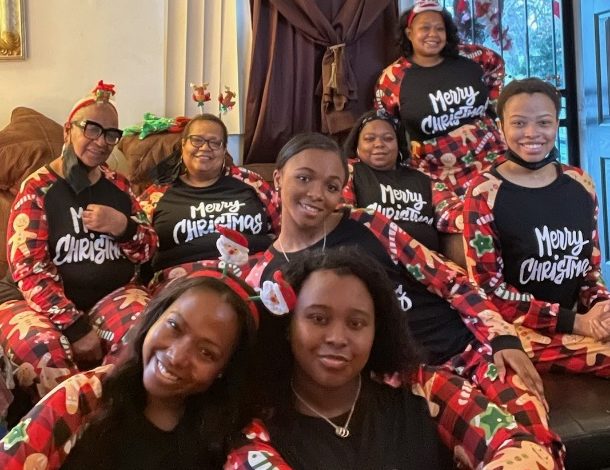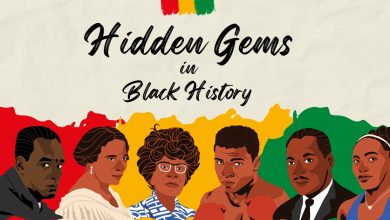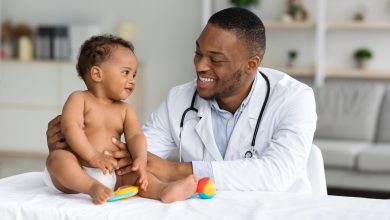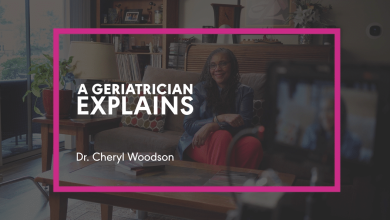COVID Nearly Took My Life, Then Came Cancer: How I Fought Back!


In November 2020, Linda felt a small lump in her breast. Little did she know that this pea-sized lump would become part of a story that involved not just breast cancer, but also a battle with COVID-19, immense family support, and unwavering faith.
In light of Breast Cancer Awareness Month, Linda’s journey stands as a powerful testimony to resilience, advocacy, and the importance of clinical trials for women of color. This article revisits Linda’s courageous battle, and her efforts to navigate the medical system while keeping her faith.
Discovering the Lump: A Journey Begins
Linda first discovered a lump in her breast in November 2020. Despite the alarming find, life’s demands didn’t stop. She scheduled a mammogram, but before she could attend, she contracted COVID-19.
“My husband was an essential worker, and he came home one day and told me he had been exposed,” Linda recalls. As her symptoms worsened, her daughter, a CNA at the time, noticed subtle but concerning changes in her mother’s behavior. Linda’s fever escalated, and before long, she was intubated and unconscious for nearly a month.
“I was in a sleep coma throughout December, and in January, when I came out of it, I realized I had been asleep when I was supposed to have my mammogram. When I felt the lump again, it was now the size of a golf ball,” Linda tells BlackDoctor.org, adding that she also learned her husband had passed away from COVID while she was in the coma.
The delay caused by COVID-19 pushed her cancer treatment timeline forward, but Linda remained steadfast.
The Fight Against Triple-Negative Breast Cancer
When Linda was diagnosed with triple-negative breast cancer (TNBC), an aggressive form of breast cancer, she was immediately faced with the daunting reality of a fast-spreading disease. Triple-negative breast cancer is known for its ability to metastasize to other organs, and for Linda, that meant her brain and bones were affected by early 2021. The situation grew more serious as the cancer metastasized, however, Linda’s family stepped in, ensuring she got the care she needed.
“It also spread to my bones and, I believe, my liver; there were several spots. My daughter spoke with an advocate who advised that I needed to go to a bigger city for better treatment options because of the metastasis and the outlook for life expectancy. My daughter was determined to do anything for my well-being, even though I was hesitant to go to the city due to concerns about COVID and violence,” Linda shares.
Thankfully, Linda’s daughter did her research, landing her mom at the University of Pennsylvania, where she met Dr. Hayley Knollman, a specialist in advanced breast cancer treatments. “She found an advocate who told her there’s a known disparity between how this type of cancer affects Black and white people. He encouraged her to find a hospital in the top ten for cancer treatment because our local hospital wasn’t even in the top 100. My daughter stepped up and did her research, and I’m so thankful she did,” Linda notes.
Dr. Knollman recommended Linda for a clinical trial involving chemotherapy and immunotherapy.
“I went there and met the brilliant Dr. Hayley Knollman. They explained that the disparities between Black and white women in cancer treatment are significant. They know that many people of color do not sign up for research studies, which makes it difficult to advance treatment options. I agreed to participate in the study, which lasted about two years, consisting of 35 cycles of chemo and immunotherapy. After that, they could only offer me chemotherapy, but Dr. Knollman and I discussed it, and I wanted to try immunotherapy. That’s where I am currently, and thank God my scans have been normal so far,” Linda says.
Faith, Family, and Medical Advocacy
Throughout her journey, Linda credits her family’s unwavering support as crucial to her survival. Her daughters played a central role in her medical journey. One daughter recognized symptoms that Linda herself brushed off, while another tirelessly researched the best treatment options and sought advocates.
“My oldest daughter, who was a CNA at that time and is now in mental behavioral health, recognized the symptoms. She was like, ‘OK, your gait is off.’ As a mother, I usually take care of everyone, and I generally don’t think much of it when I say, ‘This is how it is.’ But she realized I was not in a good place, especially when she called an hour later, and I was still in the bathroom. She decided to take matters into her own hands and called 911. Thank God she did, both then and when it metastasized. She knew something wasn’t right,” Linda shares.
Linda also credits her middle daughter, who lives in California, for being her advocate.
“She was determined to find information after I got sick, especially since she lost one parent. She said, ‘I can’t lose my mother.’ She didn’t care about the cost or where we had to go; she was going to do everything in her power to help me,” Linda adds.
Family wasn’t Linda’s only source of strength. Her Christian faith played an enormous role in her recovery.
“I truly believe this is nothing but God and miracles. Every time I go in for my appointments, my doctors say I’m a walking miracle. After every few weeks, I had CT scans and MRIs. Initially, the tumors were at 78 centimeters, then they reduced to 32 centimeters, then down to 16. Dr. Knollman said, ‘This is wonderful; this is miraculous,’ but she explained that this type of cancer doesn’t go into remission due to its aggressive nature,” Linda shares.
Thanks to the clinical trial, Linda’s diagnosis, once considered a potential death sentence, has now resulted in a “complete response.”
“When I got the reports confirming a complete response, I was like, ‘Praise God! That is nothing but a miracle!’ As of now, I’m cancer-free, praise God. I’m on immunotherapy, and I’m claiming it will stay away,” Linda says.
The Importance of Clinical Trials for Black Women
One of the key lessons Linda learned in her journey was the disparity in breast cancer treatments between Black women and their white counterparts. Statistics show that Black women often face worse outcomes and receive fewer opportunities for cutting-edge treatments. Linda’s story, however, stands as a reminder of the power of clinical trials.
Initially, Linda was wary of joining a clinical trial, given the painful history of unethical medical experiments on Black Americans, such as the Tuskegee Experiment. But after asking the necessary questions, her fears were alleviated.
“I had an excellent team. They assured me that my treatment would be exactly what it was supposed to be. There were some requirements, but they were manageable. They asked for symptom reports and did routine check-ins to assess side effects,” Linda says. “Overall, it was a pleasant experience. I had asked God to put positive people in my path, and my research team was excellent. They were always there to support me during appointments.”
Living Life to the Fullest Post-Cancer
With her aggressive cancer now behind her, Linda has shifted her priorities. After surviving both COVID-19 and triple-negative breast cancer, she has a new perspective on life.
“Life is short. You only live once, and God has granted me extra time,” Linda reflects. “I want to live life to the fullest—spend time with my family, take that trip we’ve always talked about, and enjoy every moment.”
Linda’s family, once torn by the fear of losing her, now embraces every moment they have together. “My daughters and I celebrate each other. We appreciate each other in ways we didn’t before,” she says.
Linda’s battle with cancer, strengthened by faith, family, and an excellent medical team, stands as a testament to the importance of advocacy, research, and personal resilience. Her story is not just about surviving breast cancer; it’s about surviving life’s unexpected blows, finding joy in family, and trusting in the process—whether that be God, medicine, or both. For Linda, it was all of the above.
She urges others to get checked and trust their instincts. “I remember when I felt my lump, I was like, ‘Oh, that’s not anything,’ and I downplayed it. I advise anyone experiencing symptoms not to wait; please advocate for yourself. Even when doctors tell you something, seek a second opinion or push for tests until you receive the necessary answers. Early detection is critical,” she adds.
She also encourages women, especially women of color, to be fearless when speaking up for themselves.
“I want them to be fearless when seeking answers and not wait until the last minute. Stay persistent. I want them to know they have a voice, and they need to use it, especially in the healthcare field. Just don’t let anyone diminish you or tell you you don’t have a voice; you do,” she concludes.




